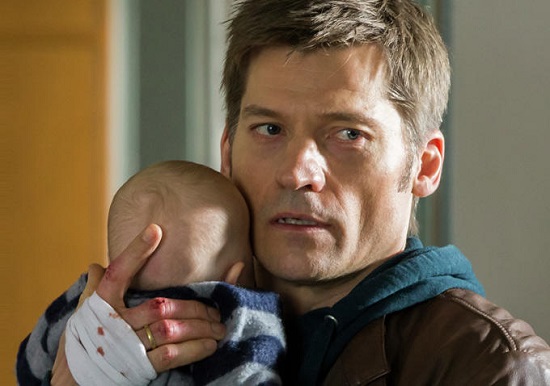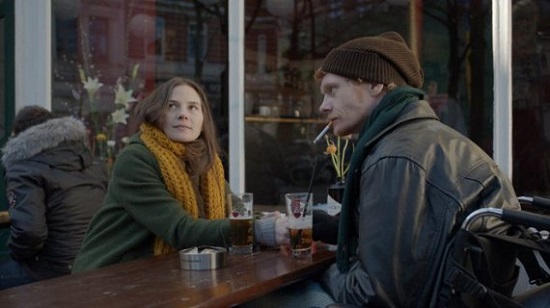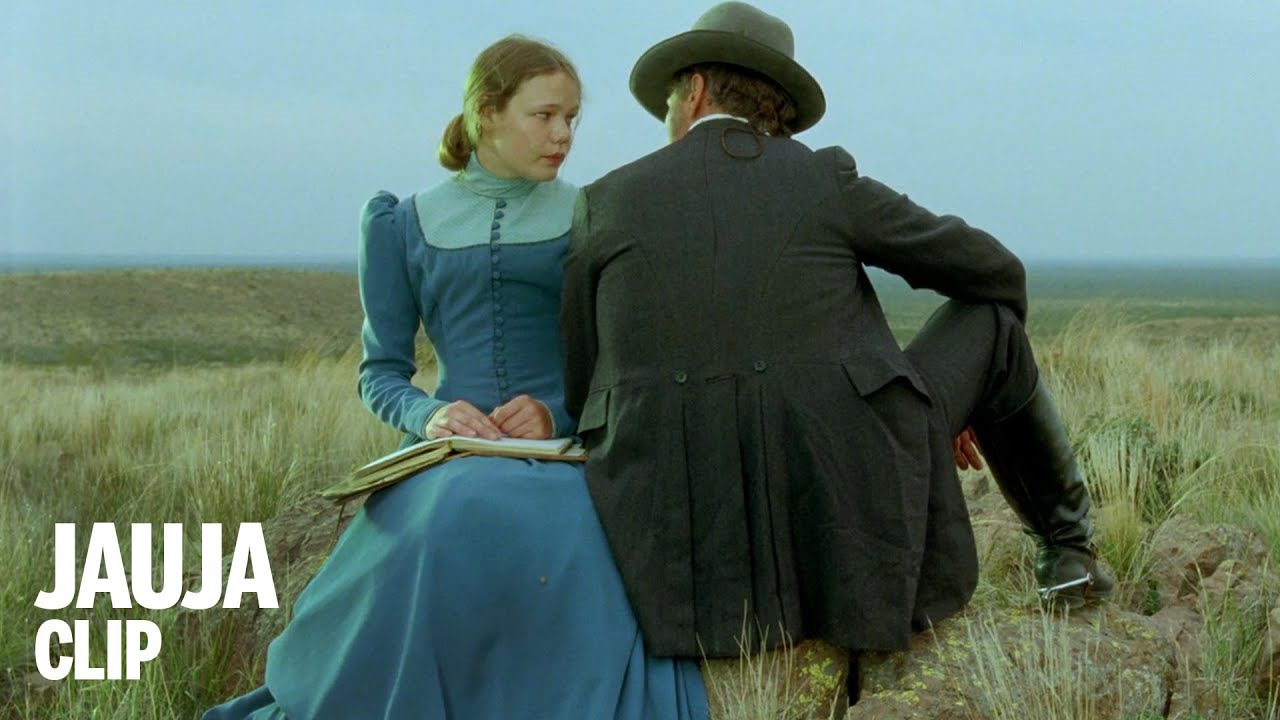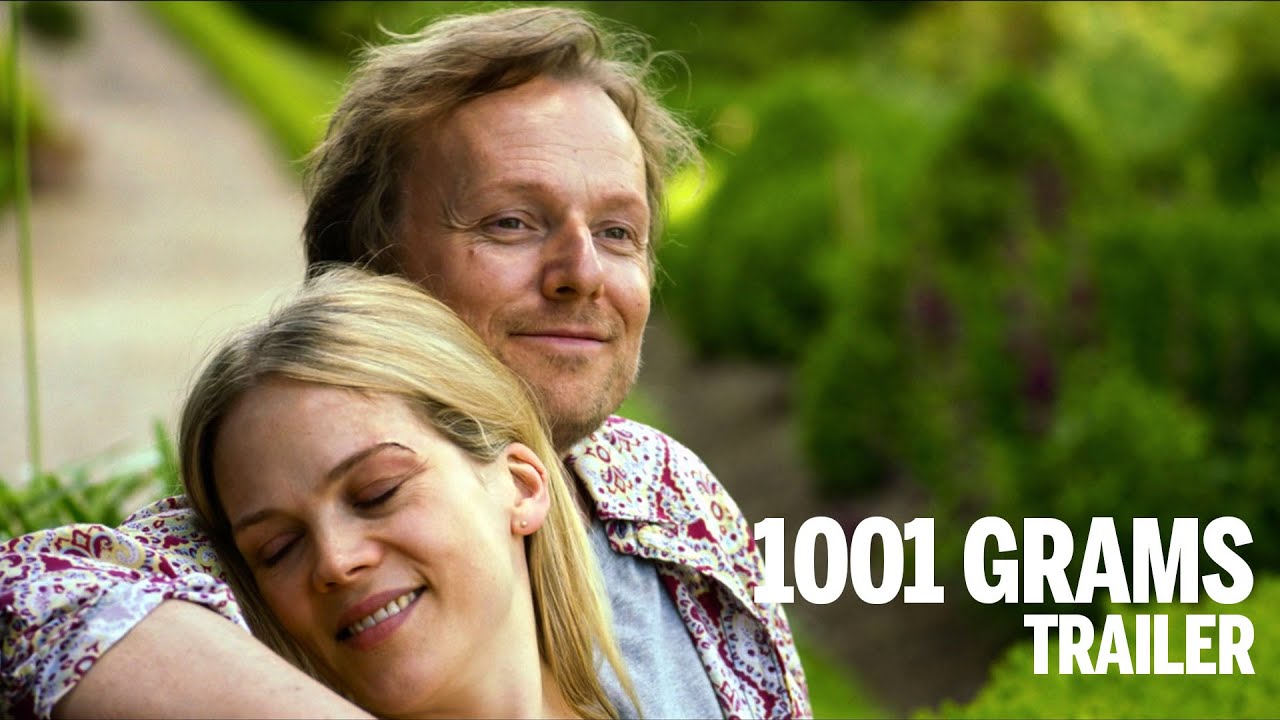Each January, audiences from across Scandinavia and beyond flock to Sweden’s second city to take in two weeks of films, music and art at the Gothenburg Film Festival. With almost 500 films representing 89 countries, and a diverse programme of events, it’s the largest and most important film festival in Scandinavia, but it’s not as well-known outside of the Nordic countries as it deserves to be. This festival, though, is nothing if not ambitious, and its scope seems set only to increase. As well as films, there’s clubs, live music, masterclasses with filmmakers and regional events – and it’s just as audience-focused as it is industry-focused.
But the main programme of the festival is what most audiences come for. Like most, this festival is organised by strands; as well as the usual short films programmes and gala screenings of big international releases and classic films, this year they included focuses on Japanese cinema, the films of Czech animator Michaela Pavlátová, and films made by immigrants to Sweden. The Masters section includes new films from established directors, and this year showcased, amongst others, Andrei Konchalovsky’s The Postman’s White Nights and Frederick Wiseman’s amazing National Gallery. The Nordic Light section covered Nordic cinema, with a spotlight on female directors from Norway, and also featured a collection of films made by artists for galleries.
Then there was the Five Continents section, expanding the global scope of the festival and including Cuba’s Oscar pick, Behaviour (Ernesto Daranas), Avinash Arun’s debut from India, The Fort, and minimalist Taiwanese debut Exit (Chienn Hsaing). New Voices covered global debut features, including films like Zeresenay Berhane Mehari’s Difret, which deals with the clash of tradition and modernity in Ethiopia, Soon-mi Yoo’s portrait of the North Korean dictatorship, Songs From the North, and the Oscar submissions from Iraq (Batin Ghobadi’s mystery Mardan) and Colombia (Maria Gamboa’s coming-of-age drama Mateo). Finally, there’s the Little Film Festival, a weekend of films for children before the main event.
The documentary showing at Gothenburg is varied and strong, ranging this year from the very personal, to the globally vital. There was Good Girl, Solveig Melkeraaen’s film about depression, Lina Mannheimer’s The Ceremony, about the private world of sadomasochism in Paris, and Frieda Kempff’s look at the lives of pregnant, homeless and addicted women in Toronto, Winter Buoy. Then we saw San Paulo’s street art movement meet high culture in Amir Escandari’s Pixadores. And the winner of the festival’s Dragon Award for Best Nordic Documentary was Joshua Oppenheimer’s The Look Of Silence, his follow-up to The Act Of Killing which revisits the mass murders of communists in Indonesia in 1965-6.
Of course, with such a diverse programme, it’s inevitable that thematic connections will emerge and suggest themselves, even without the help of a curated programme. This year, there seemed to be a strong preponderance of serious drama, weighty themes of terminal illness, death and grief (Michael Noer’s Key House Mirror, Samanou Acheche Sahlstrøm’s In Your Arms). There was also a strong showing in the sweet coming-of-age drama category (Esa Illi’s Other Girls, Jukka-Pekka Valkeapää’s They Have Escaped), and the emotional family drama genre (Anne Sewitsky’s Homesick, Sanne Lenken’s My Skinny Sister, Hafsteinn Gunnar Sigurðsson’s Paris Of The North). Organising festivals by strand helps audiences find the films they’re interested in, for sure, but then there’s one of the more fun things about going to a festival, the accidental connections that also emerge on top of the ones you get pointed towards – like noticing that 80% of the films you see involve someone going swimming outdoors, say, or that shooting through rainy car windows is extra popular this year for some reason.
Gothenburg itself is perhaps the most important element of its festival. It’s not that well known as a destination city, but in fact it has a great deal to offer, and its combination of manageable size and rich cultural offerings makes it a perfect setting for a visit to a festival. It’s the kind of thing that you don’t realise matters for an event like this until you’re at one.
Gothenburg is impeccably chic and trendy. The town has two universities, so it’s geared up for lively entertainment. In places, it’s reminiscent of a much nicer version of the fashionable parts of east London. It has its high streets, lined with the sorts of department and chain stores you’d expect, but it also has street after street of little independent vintage shops, cafés and restaurants, especially in the cutely attractive Haga district. You can buy anything from a lamp made of feathers to a giant cinnamon bun to retro ceramics. People here love cosiness – unsurprising, perhaps, in the winter, although actually the west of Sweden is no colder than the south of England at the moment – and the bars and restaurants specialise in creating warmth and comfort whether you’re just having traditional Swedish fika, which means a stop for a drink (usually, but not exclusively, coffee) and something sweet (but you must have company, or else it doesn’t count as a fika, apparently), or going out for a fancy dinner and a night of bar-hopping. Creating a vibrant nightlife pre- and post-film seems to be a priority for this festival – it’s a town that’s proud of its music (especially metal) and culinary scenes and wants to showcase them to festival visitors just as much as the film programme.
Below is a round-up of some of this year’s festival’s offerings:
Homesick (De naermeste, Anne Sewitsky, Norway)

Charlotte (Ine Wilmann) is a bit lonely, a bit strange – we’re introduced to her through the awkward, too-revealing speech she makes at her best friend’s wedding. Something’s a little off about Charlotte. She knows she has a half-brother, Henrik (Simon J Berger), but they’ve never met. When he and his wife and young child move back to Oslo, though, Charlotte initiates contact. Henrik is initially uninterested in meeting her, but a night out drinking changes their relationship into something else altogether. This is a strange, dispassionate story of incest and betrayal that’s told almost entirely on superficial terms. We observe Charlotte, Henrik and their mother Anna (Anneke Von Der Lippe), but we don’t get to know them. We never find out why Anna abandoned her first marriage, or why Charlotte is so socially awkward, only at ease with the children she teaches dance to. Maybe we aren’t supposed to know – maybe Homesick just wants to lay out some facts of its narrative and expects us to infer as we please about the rest of it – and that doesn’t necessarily make for a bad or unsatisfying film. It’s just that it feels like it’s taking the easy way out of its own setup, somehow.
Underdog (Svenskjävel, Ronnie Sandahl, Norway/Sweden)
The original title of this film is more telling than the English: “Svenskjävel” means something like “Swedish bitch”. It’s the story of Dino (Bianca Kronlöf), one of the vast number of Swedish economic migrants who are moving to Norway to escape Sweden’s mass unemployment and take advantage of the country’s oil wealth. Dino moves to Oslo and takes a job looking after the house and children of a former tennis professional, Steffen (Henrik Rafaelsen). Inevitably, her arrival profoundly upsets the dynamics within Steffen’s family, and what follows is a tale of inappropriate romance and betrayal that fits firmly within the European art-cinema tradition. The drama that plays out is framed as a reflection of one view of the Scandinavian political situation in microcosm – Dino represents the provocative, hard-working young Sweden, depended on by her doddering old uncle Norway who just happens to have won the lottery, as Dino puts it. Svenskjävel doesn’t do anything new or surprising, but it’s a solid enough family drama.
Jauja (Lisandro Alonso, Argentina/Denmark/United States/Netherlands/France/Mexico)
Jauja refers to a mythical land of abundance, that many have sought but none have found. Viggo Mortensen plays Gunnar Dinesen, an army officer travelling with his daughter Ingeborg (Viilbjørk Malling Agger) across some kind of mystical South American desert. A mysterious disappearance sends him on a journey across the lushly brutal Patagonian wilderness that’s as much interior as it is exterior. Jauja is presented in bright, primary colours and in a narrow aspect ratio, and the effect is like an old photograph that moves. And only barely, as it turns out – the film is extraordinarily static and careful, ponderous and slow, exquisite and mysterious. Scenes are shot from far off, and action happens in the background. Some scenes are reminiscent of some kind of strange, twisted take on Kelly Reichardt or Werner Herzog, as if someone decided to revisit Old Joy, Meek’s Cutoff or Aguirre, The Wrath of God through a broken lens.
Other Girls (Toiset tytöt, Esa Illi, Finland)
A sweet, classic coming-of-age drama that tells the stories of four teenage girls, who each get a chapter of the film to themselves, but whose friendship runs through as a common thread. Each girl’s narration asks a variation on the question ‘how was I supposed to know what would happen?’ – the theme is the uncertainty of youth, the way the infinite possibilities of your teenage years can be just as hampering as they are freeing. It’s a classic paradox – the young lack the experience to fully make the most of the youth they have, and the only way to gain the experience is to make mistakes. This is well-trodden ground – the carefree summer picnicking, the agony of first love’s betrayal, the awkwardness, the bullying, the uplifting moments of redemption – but it’s handled with a light, breezy touch that makes it enjoyable.
In Your Arms (I dine hænder, Samanou Acheche Sahlstrøm, Denmark)
Deservedly the winner of two awards at the festival, including the main Dragon Award for Best Nordic Film, Sahlstrøm’s drama is by turns moving, surprising, intimate and brutal. Niels (Peter Plaugborg) is suffering from an incurable degenerative disease; he wants to die, but he’s not capable of taking his own life by himself. He decides to travel from Denmark to a Swiss clinic that can assist his suicide, but he needs help to get there, so he begs lonely nurse Maria (Lisa Carlehed) to accompany him on the train. The story of their journey takes a few unexpected turns – visits to Hamburg strip clubs aren’t, perhaps, the most expected kind of detour – but it’s really about how impossible it is to face up to the fact of doing anything when you know it’s for the last time. This is a sensitive yet unflinching film about dignity in the face of the indignity of grief.
A Second Chance (En chance til, Susanne Bier, Denmark)

Susanne Bier’s latest, co-written as always with Anders Thomas Jensen, is another intimate, harrowing look at grief. Nikolaj Coster-Waldau plays Andreas, a cop who tries not to let the terrible things he sees intrude on his seemingly perfect life with wife Anna (Maria Bonnevie) and their baby son. When he and troubled partner Simon (Ulrich Thomsen) are called to a domestic dispute at the flat of Tristan, a junkie they know of old (Nikolaj Lie Kaas), they find he’s also become a father – his infant son is hidden in a cupboard, covered in his own filth. There are some uncompromisingly brutal scenes here – Michael Snyman’s camera doesn’t shy away from any of the revolting details – and the shocking facts of the abuse Tristan inflicts on his partner Sanne (Lykke May Andersen) as well as his child is hard to watch. It immediately begins to take a toll on Andreas, and his desire for justice means that the events that eventually unfold take on the inevitability of tragedy. The performances are all outstanding, as you would expect of any project involving Bier and actors she has often collaborated with, and the drama is intense and gripping, but it’s not her best film. The plot feels just a little too contrived, the close-ups on suffering a little too provocatively shocking, somehow. Then again, even Bier’s second-best is worth giving time to.
1001 Grams (1001 Gram, Bent Hamer, Norway)
Bent Hamer’s new film is a wonderful thing, an exquisite portrait of what it means to care about the details in life. Marie is a scientist, working at the Norwegian institute that establishes and protects the scientific standards for weights and measures; she spends her days checking scales and petrol pumps. She works with her beloved father, Ernst, sharing stolen moments to chat and smoke cigarettes when they’re at the labs together – clearly, he’s the cornerstone of her life both personally and professionally. Ernst is getting on, and he encourages Marie to be the one to take the Norwegian national kilo to a Paris conference. This kilo of platinum and iridium can’t be touched and has to be housed in an elaborate, climate controlled system of bell jars and metal canisters – being entrusted with its care is a big step for Marie. But it’s Ernst’s passing on of responsibility to her that marks the beginning of the end of her ability to keep control.
The film is as precise, controlled and measured as the kilo that Marie treats with such reverence. It’s beautiful to watch, with its intense blues and calm, careful compositions, and the quietly affecting drama is deeply satisfying.




